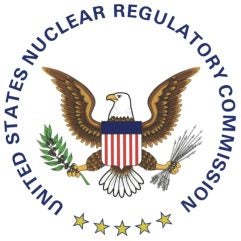
Bipartisan legislation to support the development and deployment of new nuclear technologies – The Accelerating Deployment of Versatile, Advanced Nuclear for Clean Energy (ADVANCE) Act – has been adopted by the US Senate with a vote of 88-2. It will now go to President Joe Biden for signature. The legislation is expected to speed up the timeline for licensing new nuclear reactors and cut fees that companies have to pay to do so. It also requires the Nuclear Regulatory Commission (NRC) to put together a report that considers ways to simplify and shorten the environmental review process.
Senators Tom Carper, Chairman of the Senate Environment & Public Works Committee, said the ADVANCE Act will provide NRC with the tools and workforce it needs to review new nuclear technologies efficiently, while maintaining NRC’s critical safety mission and creating new jobs. He added that it will “lay the foundation for the safe and successful deployment of the next generation of advanced reactors in the coming decades”.
The ADVANCE Act will facilitate US nuclear energy leadership by:
- Empowering the Nuclear Regulatory Commission to lead in international forums to develop regulations for advanced nuclear reactors.
- Directing the Department of Energy to improve its process for approving the export of American technology to international markets, while maintaining strong standards for nuclear non-proliferation.
It will support development and deployment of new nuclear energy technologies by:
- Reducing regulatory costs for companies seeking to license advanced nuclear reactor technologies.
- Creating a prize to incentivise the successful deployment of next-generation reactor technologies.
- Requiring NRC to develop a pathway to enable the timely licensing of microreactors and nuclear facilities at brownfield and retired fossil-fuel energy generation sites.
It will strengthen the US nuclear energy fuel cycle and supply chain infrastructure by:
- Directing NRC to enhance its ability to qualify and license accident-tolerant fuels and advanced nuclear fuels that can increase safety and economic competitiveness for existing reactors and the next generation of advanced reactors.
- Tasking NRC to evaluate advanced manufacturing techniques to build nuclear reactors better, faster, cheaper and smarter.
It will improve NRC efficiency by:
- Providing flexibility for NRC to better manage and invest its resources in activities that support NRC’s modernisation efforts and address staffing issues.
- Provide the NRC Chair the tools to hire and retain exceptionally well-qualified individuals to successfully and safely review and process applications for advanced nuclear reactor licences.
Meanwhile, NRC has approved the staff’s proposal to establish voluntary alternative physical security requirements for advanced reactors. The proposed rule will be published in the Federal Register for public comment once the staff incorporates changes directed by the Commission.
The proposed rule would apply to non-light-water reactors and light-water small modular reactors that meet certain criteria related to the potential radiological consequences of an accident or sabotage. Some of these reactor designs will have smaller power outputs and smaller inventories of fission products than traditional large light-water reactors in use today. Such attributes could result in smaller and slower releases following a loss of safety functions compared to the larger reactors.
The proposed rule would allow such facilities to employ voluntary alternative physical security requirements appropriate to the risk posed by their technology instead of the prescriptive requirements in current NRC regulations for large light-water reactors.






